Poetry
Poetry

Every Time I Am Away From The Internet, I wonder if I am loved
You know the feeling : you’re online, right, and for no particular reason, you start to feel weird. Like something glorious is about to happen. And then, just like that, it fades, the glory has passed; now you feel sad. Did you miss it?
Oh, what a time to be alive. I love this life. I sometimes wonder whether it loves me back, but I try and convince myself that such things don’t matter. Nothing does, and that’s the best part.
Well, anyway, this is an exploration of some of the feelings that could crush us in the digital 21st century.

Cough Drop Circus
Josheph Dunkerley, Holly Miles
This collection of 20 poems by young poets Holly Miles and Joseph Dunkerley sheds a glimpse into the bizarre journey of two isolated souls in a time of global crisis. Read along in this 24 page zine as they chart their unique perspectives of the worldwide COVID-19 pandemic!

Anthems of Resistance: A Celebration of Progressive Urdu Poetry
Let a thousand verses bloom. Anthems of Resistance is about the iconoclastic tradition of poetry nurtured by Ali Sardar Jafri, Faiz Ahmad Faiz, Javed Akhtar, Fehmida Riyaz and all those who have been part of the progressive writers' movement in the Indian subcontinent. It documents the rise of the Progressive Writers' Association, its period of ascendancy, its crucial role in the struggle for independence, and its unflagging spirit of resistance against injustice. In the process, the book highlights various aspects of the PWA's aesthetics and politics such as its internationalist ethos, its romance with modernity, its engagement with feminism, its relationship to Hindi cinema and film lyrics, and the vision of a radically new world which its members articulated with passion.
Part history, part literary analysis, part poetic translation, and part unabashed celebration of the PWA era, this book is truly a unique resource. This is a lucidly written account of a glorious chapter in the history of Indian literature. The powerful verses of the PWA poets are wonderfully translated and, along with the highly accessible transliteration, offer the general reader a rare opportunity to appreciate the writings that helped shape a nation. Anthems of Resistance is truly an inspiring and pleasurable read.

A Bernadette Mayer Reader
A Bernadette Mayer Reader collects texts that were originally published in small press books and chapbooks, magazines, and anthologies. The book holds poetry and prose from Mayer’s earliest works to then-contemporary publications. From Story (1968), to excerpts from Desires of Mothers and Midwinter Day (1982), and including a cache of new poems, this is a sprawling, surprising collection of Mayer at her best.
The reader was met with praise from peers and critics alike. In the words of Jackson Mac Low, "[Mayer] never gets stuck in one place - she changes as the spirit moves her- and her structural inventions and self-revelations provoke surprise and delight."
Of the publication, Fanny Howe writes, "America could prove that her conscience, heart, and intelligence are still operating with this one volume of poetry."
Bernadette Mayer was born in Brooklyn, New York, in 1945. A most prolific poet, her first book was published at the age of twenty-three. Many texts later she continues to write progressive poetry from her home in East Nassau, New York. For many years Mayer lived and worked on the Lower East Side of Manhattan where she was the Director of St. Mark's Poetry Project from 1980-1984. Bernadette Mayer has received grants and awards from PEN American Center, The Foundation for Contemporary Performance Art, the NEA, The Academy of American Poets, and The American Academy of Arts and Letters.
Published 1992
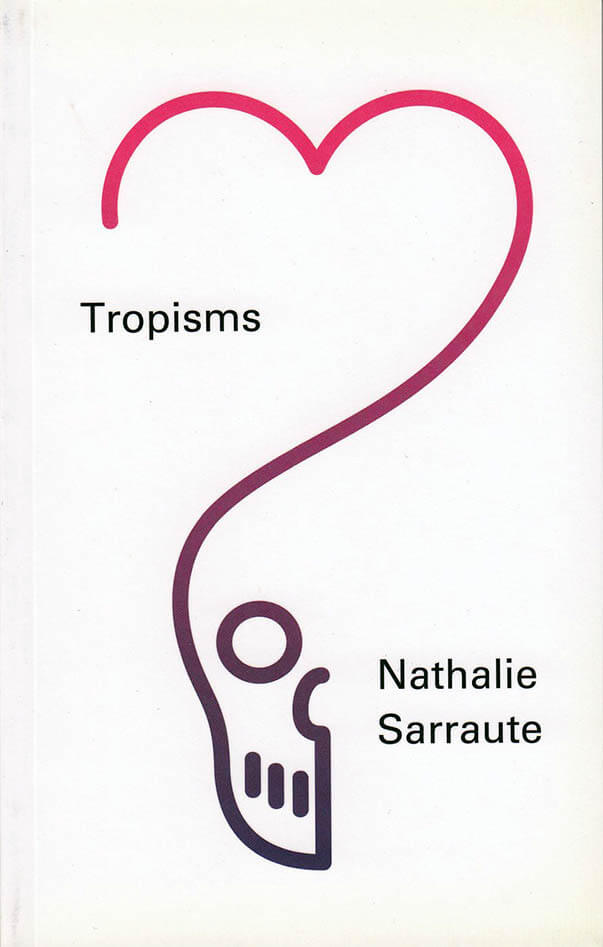
Tropisms
Nathalie Sarraute's Tropisms is considered one of the defining texts of the nouveau roman movement. Tropisms was championed as a masterpiece by Jean Genet, Marguerite Duras, and Jean-Paul Sartre, who hailed Sarraute as his favorite "anti-novelist." Sarraute defined her Tropisms as the "movements that are hidden under the commonplace, seemingly harmless instances of our everyday lives." Like figures in a grainy and shadowy photo, the characters in Tropisms are barely defined, the narrative never developed beyond a stressed moment. Instead, Sarraute brilliantly highlights the shift in tone through remarks or subtle details when a relationship changes, when we fall slightly deeper into or begin to emerge out of love or trust, or when something innocent tilts by the smallest degree toward suspicion.
Tropisms—something like 'prose poems'—as Sarraute calls them that— this is her form! Her texture is anti-novelistic, though she's decided to write 'novels' and launched an important critique of the novel on the basis of her method.—Susan Sontag
Translated by Maria Jolas.
Published 2015.

Red Doc
"Some years ago I wrote a book about a boy named Geryon who was red and had wings and fell in love with Herakles. Recently I began to wonder what happened to them in later life. Red Doc> continues their adventures in a very different style and with changed names. To live past the end of your myth is a perilous thing." Anne Carson
Anne Carson was born in Canada and has been a professor of Classics for over thirty years. Her awards and honors include the Lannan Award, the Pushcart Prize, the Griffin Trust Award for Excellence in Poetry, and fellowships from the Guggenheim and MacArthur Foundations.
Published 2014.
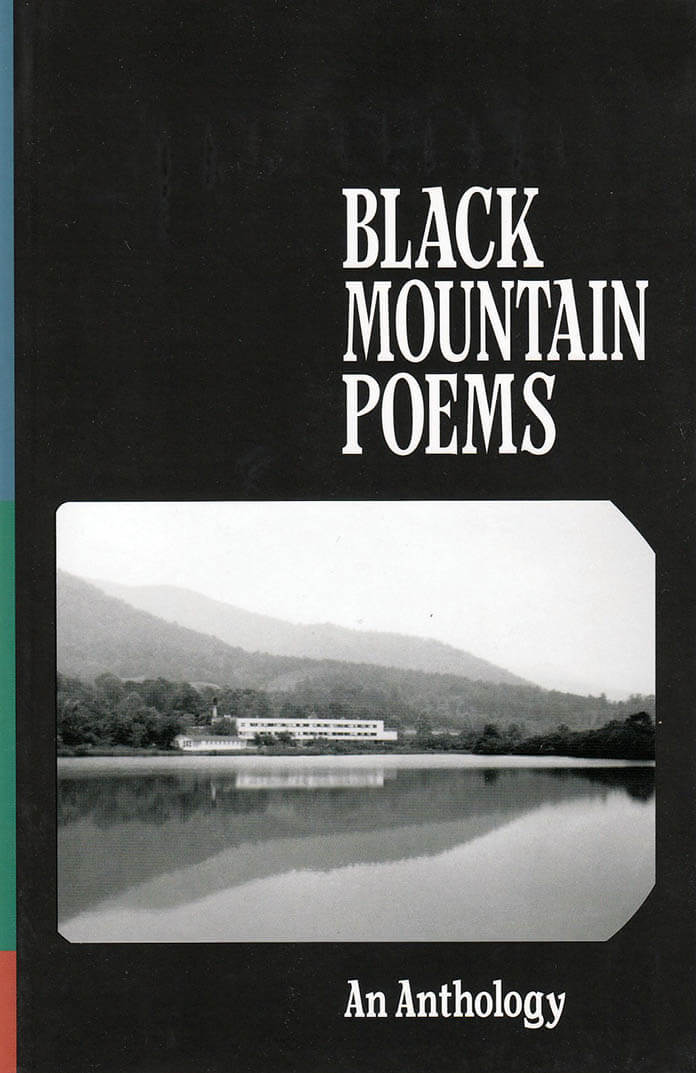
Black Mountain Poems
Black Mountain College had an explosive influence on American poetry, music, art, craft, dance, and thought; it's hard to imagine any other institution that was so utopian, rebellious, and experimental. Founded with the mission of creating rounded, complete people by balancing the arts and manual labor within a democratic, nonhierarchical structure, Black Mountain was a crucible of revolutionary literature. Although this artistic haven only existed from 1933 to 1956, Black Mountain helped inspire some of the most radical and significant midcentury American poets.
This anthology begins with the well-known Black Mountain Poets—Charles Olson, Robert Creeley, Robert Duncan, and Denise Levertov—but also includes the artist Josef Albers and the musician John Cage, as well as the often overlooked women associated with the college, M. C. Richards and Hilda Morley.
published 2019.
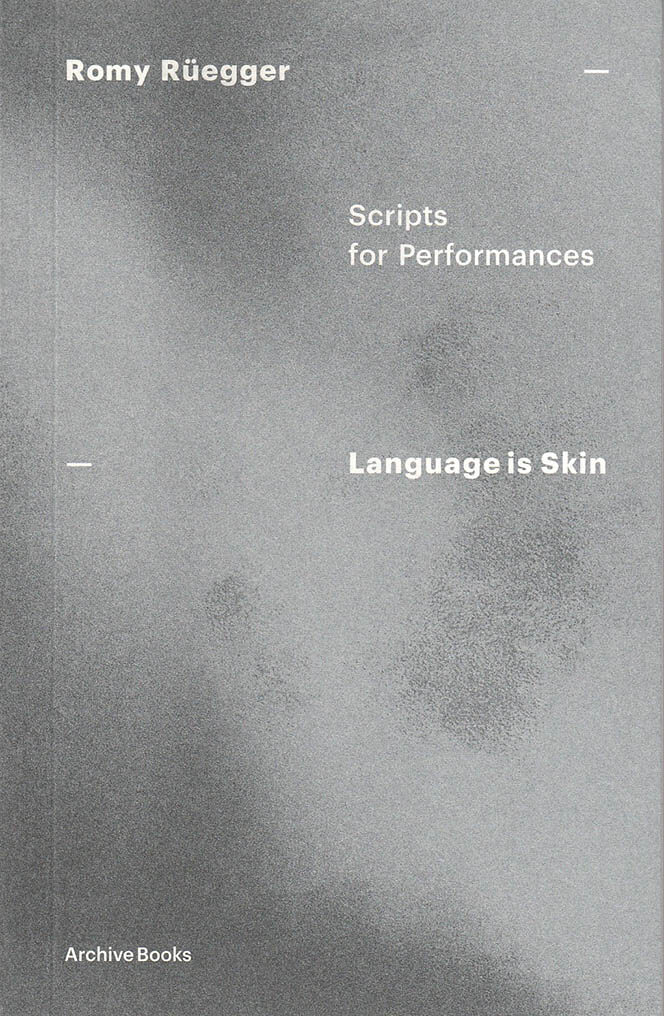
Language Is Skin: Scripts for Performances
The scripts of Romy Rüegger's performances: a constellation of texts, largely written to be spoken. The scripts as they are printed do not document the performances primarily. They are indications of spacial and temporal layering, juxtapositions of aesthetic and poetic elements and bodies. Overlapping every day observations with archival material, confronting, jumping.
Romy Rüegger (born 1983, lives and works in Zurich) is an artist and writer working with sound-based practices and shared listening. Her writings for performances, audio works and choreographed spaces draw on anti-racist and intersectional politics of language and memory. Recent performances, audio works and publication contributions include Synthetic Stream Plays (Kunsthalle Basel, 2018), Binary Codes as NO (Gasworks, London, 2018), “I am the Wall” (in: Grounds for Possible Music, Errant Bodies Press, Berlin, 2018), Reina llora*, Reads (Transmission Gallery, Glasgow, 2017), I am the Wall (Q-O2 / Performatik Festival, Brussels, 2017), History is Closed Today (Helmhaus, Zurich, 2017), J'ai everyday ma substance (in collaboration with Anna Frei, Künstlerhaus Büchsenhausen, Innsbruck, 2017).
Published 2018
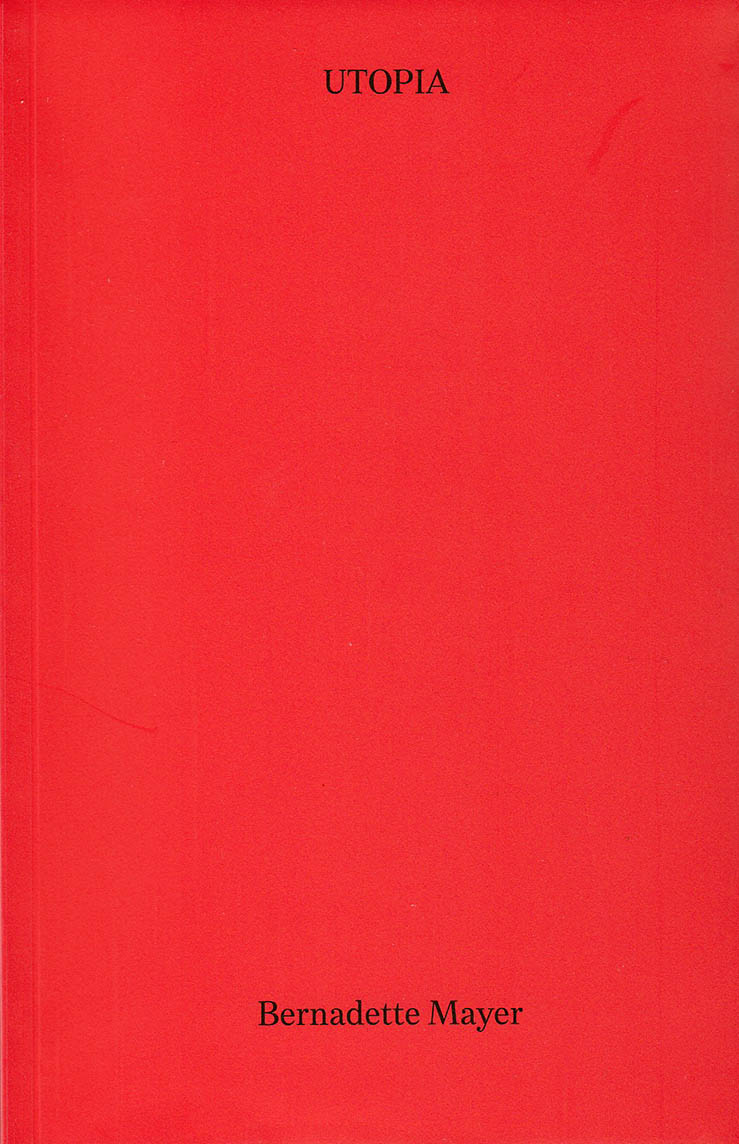
Utopia
A collection of texts defining utopia as a place existing only within the domain of language, Utopia gives a synthesis of historical utopias and a snapshot of the 1970-1980's poetic scene.
An avant-garde writer associated with the New York School of poets, Bernadette Mayer was born in 1945 in Brooklyn, New York, where she lives and works. From 1967 to 1969, she published the experimental newspaper 0 to 9 with artist Vito Acconci, which combined texts and works of writers and conceptual artists based on the use of language (Ted Berrigan, Clark Coolidge, Hannah Weiner, Aram Saroyan, Robert Smithson, Dan Graham, Morton Feldman or Sol LeWitt).
In 1967—along with Lewis Warsh—she founded the publishing house United Artists Books which published a number of influential writers such as Robert Creeley, Anne Waldman, Hannah Weiner, James Schuyler, Ted Berrigan and Alice Notley as well as Mayer's own books like 1978's The Golden books of Words or 1984's Utopia. Known for her innovative use of language, Mayer rose to prominence with the exhibition “Memory,” which combined photography and narration. During July 1971 Mayer took daily photographs and recorded her thoughts. These materials formed the basis for the exhibition, and for the eponymous book published in 1975. In 1980, Mayer became director of the Poetry Project at St. Mark's Church in New York where she also ran literary workshops. She also initiated the Poetry Project's Reading Series.
Mayer's composition methods such as chance operation, collage and cut-up identifies her as being close to the likes of John Cage, Jackson Mac Low or Frank O'Hara—central figures of the New York School—as well as more contemporary figures associated with the magazine L=A=N=G=U=A=G=E. Mayer's work is also influenced by modernist figures such as James Joyce, Gertrude Stein and the Dadaists or classical authors (Catullus).
French Edition.
Published in June 2016.
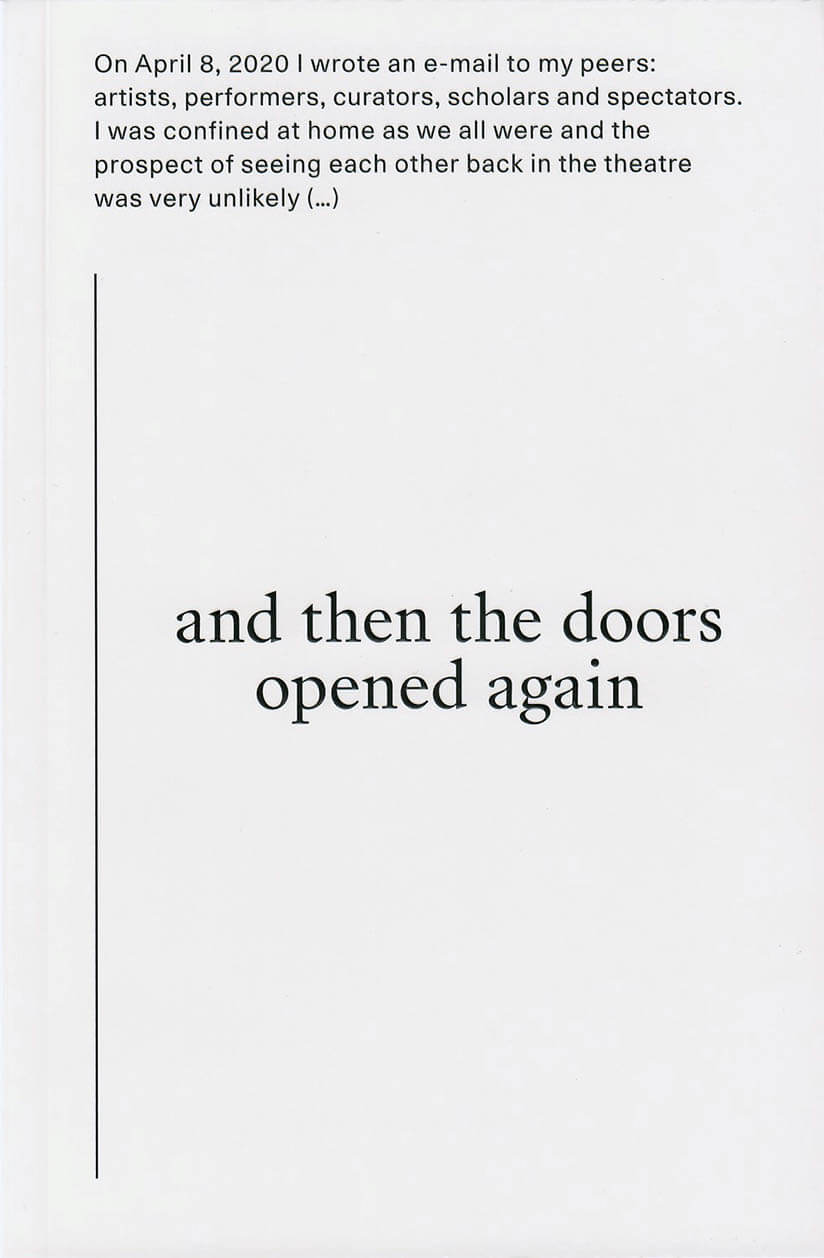
and then the doors opened again
Locked down at home during the first wave of Covid-19, David Weber-Krebs kept on thinking about the day when theatres would open their doors again. At that point, it was somehow difficult to even picture that moment.
On the 8th of April, 2020, in the middle of the lockdown, David sent an e-mail to his peers: artists, scholars, curators, and spectators belonging to different art communities. In this e-mail, there was a simple question: What will happen on your first theatre visit after the lockdown?
It was an invitation to imagine the future of theatre from this very specific moment when theatres were all closed and when it was not clear how and when and if they would open again.
With contributions by: Paula Almiron, Kristof van Baarle, Sven Age Birkeland, Antonia Baehr, Caroline Barneaud, Nicole Beutler, Maaike Bleeker, Julien Bruneau, Pieter De Buysser, Alondra Castellanos, Chloé Chignell, Amélie Coster, Jasper Delbecke, Zoë Demoustier, Wouter De Raeve, Charlotte De Somviele, Katja Dreyer, Jeroen Fabius, Silvia Fanti, Far, Nicolas Galeazzi, Emilie Gallier, Nada Gambier, Melih Gencboyaci, Konstantina Georgelou, Kristof van Gestel, Matthieu Goeury, Maximilian Haas, Ant Hampton, David Helbich, Marijke Hoogenboom, Rita Hofwijk, Breg Horemans, Asa Horvitz, Dolores Hulan, Mette Ingvartsen, Myriam Van Imschoot and Marcus Bergner (MM), Stefan Kaegi, Edyta Kozak, Bojana Kunst, Rudi Laermans, Sarah van Lamsweerde, Heike Langsdorf, Mylène Lauzon, André Lepecki, Kopano Maroga, Ivana Müller, Phoebe Osborne, Leonie Persyn, Julie Pfleiderer, Antoine Pickels, Amanda Piña, Jan-Philipp Possmann, Fransien van der Putt, Irena Radmanovic, Anna Rispoli, Martina Ruhsam, Jonas Rutgeerts, Nienke Scholts, Ula Sickle, Michael Simon, Karoline Skuseth, Lara Staal, Christel Stalpaert, Danae Theodoridou, Pankaj Tiwari, Vera Tussing, Marie Urban, Michiel Vandevelde, Hidde Aans Verkade, Mathilde Villeneuve, Georg Weinand, Stefanie Wenner, Siegmar Zacharias, Andros Zins-Browne.

a queer anthology of healing
a queer anthology of healing is a subtle, devastating mix of cuteness and embarrassment, beauty and confession, magic tricks and pain. The artworks and writings in this collection suggest that healing can be achieved through revelation, invocation, observation and disclosure. It’s a much-needed gift right now. - Chris Kraus
with Clay AD, Harry Agius, Barney Ashton-Bullock, Bodie Bellamy, Jack Bigglestone, Nick Blackburn, Helen Cammock, Charity Coleman, Swithun Cooper, Paul Gabrielli, Evan Garza, Erica Gillingham, Daniel Givens, Pete Hammond, Benedict Hawkins, Georgie Henley, Lubaina Himid, Fanny Howe, Jasmine Johnson, G.B. Jones, Kevin Killian, Wayne Koestenbaum Nic Lachance Olivia Laing, Benedict Leader, Paul Lee, Mary Manning, Ben Miller, D. Mortimer, Monique Mouton, Annie Murrells, Chuck Nanney, David Nas, Isobel Neviazsky,Paul P. , Richard Porter,Peter Scalpello, Hyacinth Schuss, Ryan Skelton, Verity Spott, Edward Thomasson, Timothy Thornton, Declan Wiffen, Ian Wooldridge

Thresholes
THRESHOLES is both a doorway and an absence, a road map and a remembering. In this almanac of place and memory, Lara Mimosa Montes explores the passage of time, returning to the Bronx of the ’70s and ’80s and the artistry that flourished there. What is the threshold between now and then, and how can the poet be the bridge between the two? Just as artists of that time highlighted what was missing in the Bronx, this collection examines what is left open in the wake of trauma and loss.
Lara Mimosa Montes is a writer based in Minneapolis and New York. Her poems and essays have appeared in Academy of American Poets’ Poem-A-Day, BOMB, Boston Review, Hyperallergic, Jacket2, and elsewhere. She is a 2018 McKnight Writing Fellow and CantoMundo Fellow. She holds a PhD in English from The Graduate Center, City University of New York. Currently, she works as a senior editor of Triple Canopy. She was born in the Bronx.

exit ambition
Exit Ambition is a catalogue of practices, documents, videos, and other projects - virtual & actual. The book operates as an incomplete index of a series of installations, instructions, anti-plays, performance scores, descriptions, etc.
Jake Reber lives and works in Buffalo, NY, where he co-curates hystericallyreal.com.

COMFORT 7/32/00
The title COMFORT 7/32/00 refers to a note I found on the street one day, that became a portal into a state of mind or a particular time, although the time was out of date or imagined, foating in between past, present and future. The book is a journey through this imagined place, where vision oscillates between perception and mechanics, where objects and materials are in permanent state of melting or intersecting.
Published August 2020.

(yet)
A collection of short poetry; (yet) is journey through everything in between; transit zones, temporary shelters, weightlessness and virtual spaces.
"I came here with the illusion it could be an island, a place I could retreat to, where I could forget myself and cover all the holes from potential air infiltration. And for a while it was possible to look at the world through a plastic sheet, but it became either suffocating or the plastic was too thin. As if shutting myself off from the world made me want to look at it even more."
Published August 2020
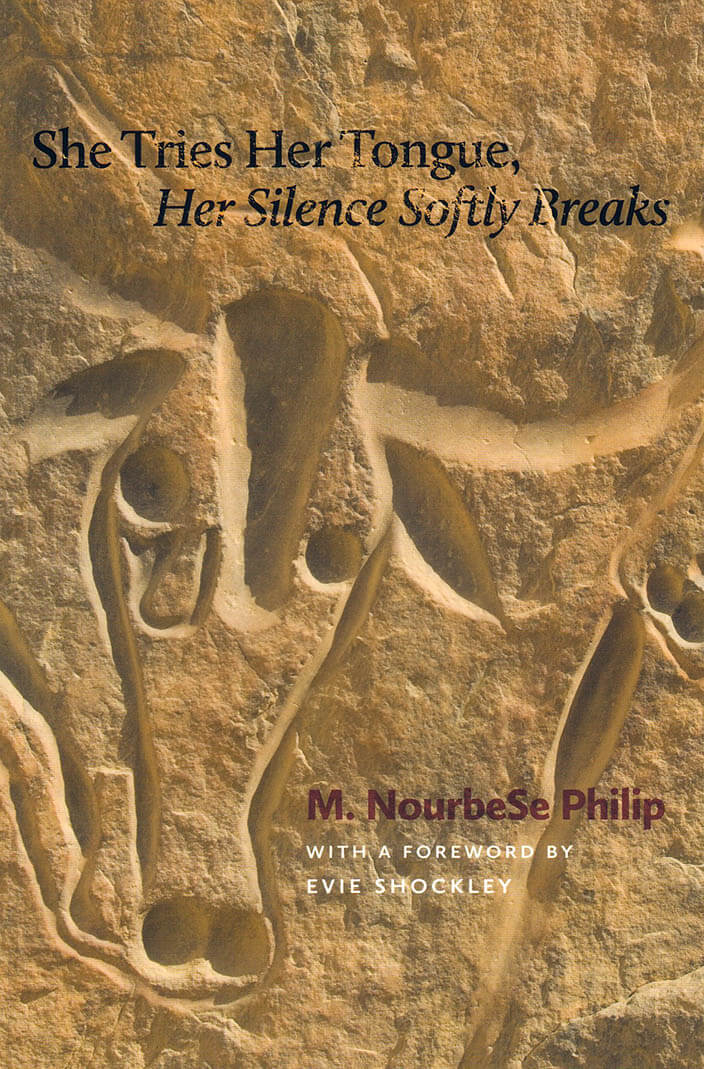
She Tries Her Tongue, Her Silence Softly Breaks
In 1988, Marlene Nourbese Philip won the prestigious Casa de las Americas prize for the manuscript version of this book. She is the first anglophone woman, and the second Canadian, to win the prize. Brilliant, lyrical and passionate, She Tries Her Tongue is an extended jazz riff on the themes of language, racism, colonialism and exile. Poems from this collection have been the subject of many academic papers and have been widely anthologized and reviewed.
Originally published in 1988 in Cuba by Casa de las Americas. Published in 1993 in North America by Ragweed Press (now Stoddart Press) and in the UK by The Women’s Press. Currently published by the author’s own publishing house, Poui Publications. Four of these poems, together with fourteen earlier poems, have been published in the anthology Grammar of Dissent.

The Service Porch
The third and final volume of Fred Moten's poetic trilogy (including THE FEEL TRIO and The Little Edges), THE SERVICE PORCH is an expansive meditation on black life, love, violence, and the adventure of making art.
National Book Award-Finalist, Moten returns here to reinvent some of his earliest poetic visions and strikes up a conversation with many of the most brilliant African American visual artists through a series of epistolary and ekphrastic poems. By turns mournful, tender, ferocious, and heart-breakingly honest, THE SERVICE PORCH is an open letter, a play list, and a hive of prayer and joy.

When My Body Was A Clinched Fist
"Back in the day when KRS-One intoned —The Bridge is over!— he did not prefigure a poet from Queens of the fierce attitude and intellectual magnitude of Enzo Silon Surin. WHEN MY BODY WAS A CLINCHED FIST gives the Heisman to such a refrain with lyrical power-packing poetics that settles the score with a succinct— Not! No the Bridge is not over, for Surin's Queens is alive and well and under the gaze of a master observer who eulogizes lives that though at times are battered have always mattered.
Enzo Silon Surin's poems get you caught up in the deeply personal experiences of growing and visceral all-encompassing knowing from an acute witness of every breath and follicle of Black life from palm trees, sand and sea to street corner projects, suburban houses and fistfuls of black water. Surin writes about the confused and disconnected, trigger happy wannabes trapped by outdated notions of masculinity, the cracked head crackheads all held in the clutch of society's clinched fist through which the trauma that comes with being of color, addicted, broke, lost and tossed, is itself a clinched fist of black bodies caught in the Russian nesting doll America's clinched fists make.
WHEN MY BODY WAS A CLINCHED FIST is an elegy for 'the premature exits.' It is a blues for the black-on-black black and blue. Surin yields his pen like a microscopic scalpel whereby an autopsy of possibility is performed to un-clinch the remarkable bone gristle poetry in these unflinching heart-wrenching pages."—Tony Medina
Enzo Silon Surin, Haitian-born poet, educator, speaker, publisher and social advocate, is the author of two chapbooks, A Letter of Resignation: An American Libretto (2017) and Higher Ground. He is the recipient of a Brother Thomas Fellowship from The Boston Foundation and is a PEN New England Celebrated New Voice in Poetry. Surin's work gives voice to experiences that take place in what he calls "broken spaces" and his poems have appeared in numerous publications including Crab Orchard Review, Origins, Transition Magazine/Jalada, Interviewing the Caribbean, jubilat, Soundings East, The BreakBeat Poets: New American Poetry in the Age of Hip-Hop, and sx salon. Surin holds an MFA in Creative Writing from Lesley University and is currently Professor of English at Bunker Hill Community College and founding editor and publisher at Central Square Press. His debut full-length poetry collection is WHEN MY BODY WAS A CLINCHED FIST (Black Lawrence Press, 2020).

Directed by Desire: The Collected Poems of June Jordan
This definitive volume gathers work from June Jordan’s ten books of poetry and includes many never-before-published poems—including a tender, fierce, and innovative collection of poems written before her death in 2002. Throughout her storied career as an artist and activist, Jordan chronicled a living, breathing history of the struggles that have defined the United States. Having engaged in a vast stylistic range, Jordan’s work broadened and enriched the traditions of American poetry. Alice Walker wrote of Jordan: “[She] makes us think of Akhmatova, of Neruda. She is among the bravest of us, the most outraged. She feels for all. She is the universal poet.”
With a foreword by Adrienne Rich.
June Jordan was born in Harlem in 1936 and was the author of ten books of poetry, seven collections of essays, two plays, a libretto, a novel, a memoir, five children’s books, and June Jordan’s Poetry for the People: A Revolutionary Blueprint. As a professor at UC Berkeley, Jordan established Poetry for the People, a program to train student teachers to teach the power of poetry from a multicultural worldview. She was a regular columnist for The Progressive and her articles appeared in The Village Voice, The New York Times, Ms., Essence, and The Nation. After her death from breast cancer in 2002, a school in the San Francisco School District was renamed in her honor.
Published 2007

Salvage 8: Comrades, this is madness
The Salvage Editorial Collective on the Covid-19 crisis.
Including: ‘Mothering Against the World' by Sophie Lewis on ‘Momrades’, ‘The Bushes’ a new fiction by China Miéville, ‘Hookers and Other Angels’ photography from Juno Mac, ‘Prepared for the Worst’ by Richard Seymour on Disaster Nationalism, ‘Welfare State Populism and the “Left-Behind Left”’ by Kevin Ochieng Okoth, ‘A Glimmer of a Shell of a Husk’ by Maya Osborne; ‘The Phallic Road to Socialism’ by Sebastian Budgen; A newly translated interview with Daniel Guérin, ‘Nationalism After Coronavirus’ by Sivamohan Valluvan, ‘Striking in Striking Times: Capitalism’s Coronavirus Crisis’ by Gregor Gall, ‘Getting Dressed for a Pandemic’ by Camila Valle, ‘Out of the Iron Lung: A Miasma Theory of Coronavirus’ by Matthew Broomfield.
Poetry by Nisha Ramayya, this issue’s featured poet, and an interview with her conducted by Salvage poetry editor, Caitlín Doherty. Plus the return of the Salvage Editorial Collective perspectives pamphlet, and a postcard.
Salvage is a bi-annual journal of revolutionary arts and letters. Salvage is written by and for the desolated Left, by and for those sick of capitalism and its planetary death-drive, implacably opposed to the fascist reflux and all ‘national’ solutions to our crisis, committed to radical change, guarded against the encroachments of ‘woke’ capitalism and its sadistic dramaphagy, and impatient with the Left’s bad faith and bullshit.
Published June 2020
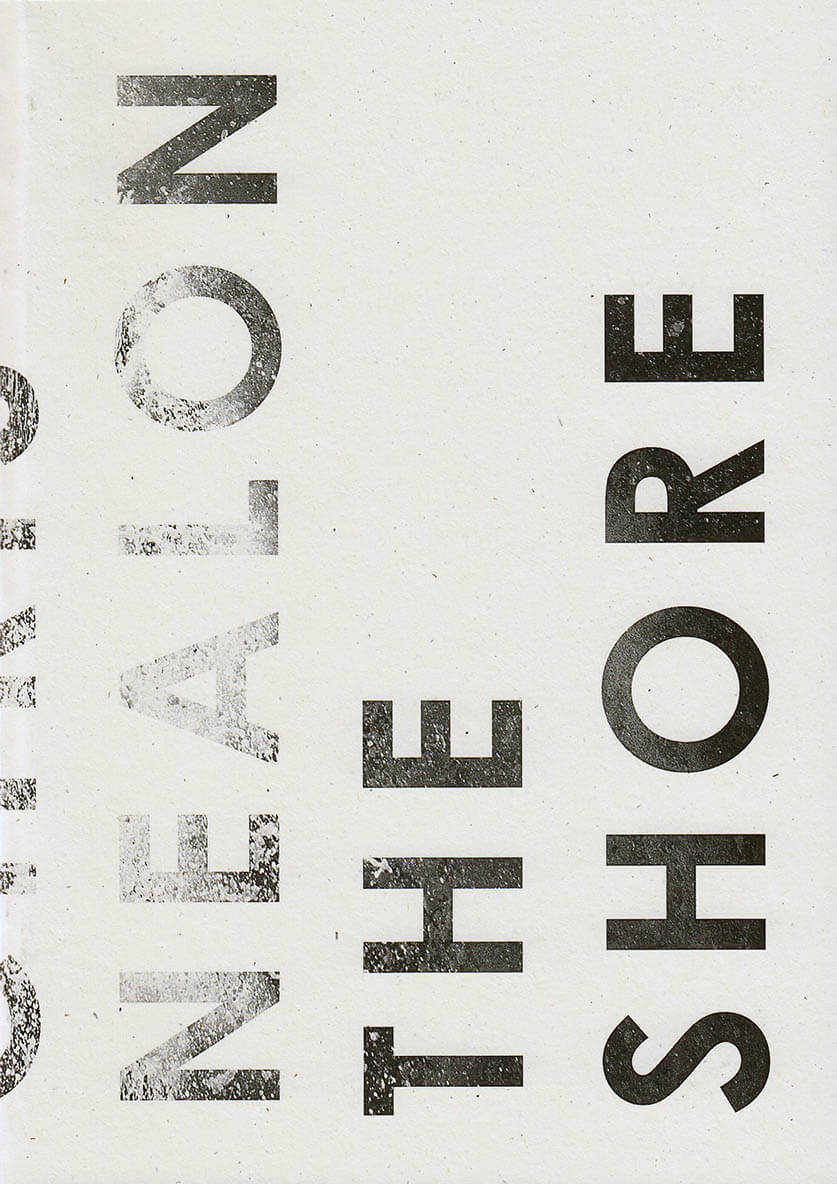
The Shore
The five poem-essays of Chris Nealon's The Shore give space and voice to the complexity of contemporary life, admitting bafflement and dismay but also creating openings for indiscreet hope. Queer and anti-capitalist, they urge us not to be ruled by our fears, while always ethically navigating the forces—race, class, age, gender, and others—that put us each in different places of power. Nimbly exploring connections among beauty, friendship, and politics, The Shore gives our era of crisis a language at once vernacular and philosophical, in a form that's both teeming and fluid.
Chris Nealon is Professor of English at Johns Hopkins University. He is the author of The Shore (Wave Books, 2020) as well as two books of literary criticism, Foundlings: Lesbian and Gay Historical Emotion before Stonewall (Duke, 2001) and The Matter of Capital: Poetry and Crisis in The American Century (Harvard, 2011), as well as three earlier books of poetry: The Joyous Age (Black Square Editions, 2004), Plummet (Edge Books, 2009), and Heteronomy (Edge, 2014). He lives in Washington, DC.

Where Are the Tiny Revolts?
Anthony Huberman, Jeanne Gerrity
Where are the tiny revolts? is the first book in a new annual series published by CCA Wattis Institute, a contemporary art center and research institute in San Francisco. Each book in the series is driven by a central question: what are we learning from artists today? Unconnected to an exhibition program, Where are the tiny revolts? is rooted in the Wattis's artist-driven research institute. It is a place to explore and share some of the texts and visual work that emerge over the course of an entire year of discussions and public programs. Instead of providing documentation of projects with artists, Where are the tiny revolts? offers other ideas, voices, and references generated by conversations with and about artists.
The first book in the series, informed by themes related to the work of Dodie Bellamy, revolves around questions related to contemporary forms of feminism and sexualities, the rebirth of the author, and ways in which vulnerability, perversion, vulgarity, and self-exposure can be forms of empowerment. The texts cover a broad array of styles, including memoir, theoretical essay, art historical analysis, poetry, and fiction. The visual elements are equally diverse, ranging from photographs to collage to drawing.
Texts by Sara Ahmed, Nicole Archer, Georges Bataille, Dodie Bellamy, Michele Carlson, Thomas Clerc, Combahee River Collective, Bob Flanagan, Ursula K. Le Guin, Johanna Hedva, Glen Helfand, Juliana Huxtable, Alex Kitnick, Julia Kristeva, Audre Lorde, Lisa Robertson; contributions by Marcela Pardo Ariza, Justin G. Binek, Kaucyila Brooke, Tammy Rae Carland, Mary Beth Edelson, Mike Kuchar, Anne McGuire, Patrick Staff, Frances Stark, Rosemarie Trockel.
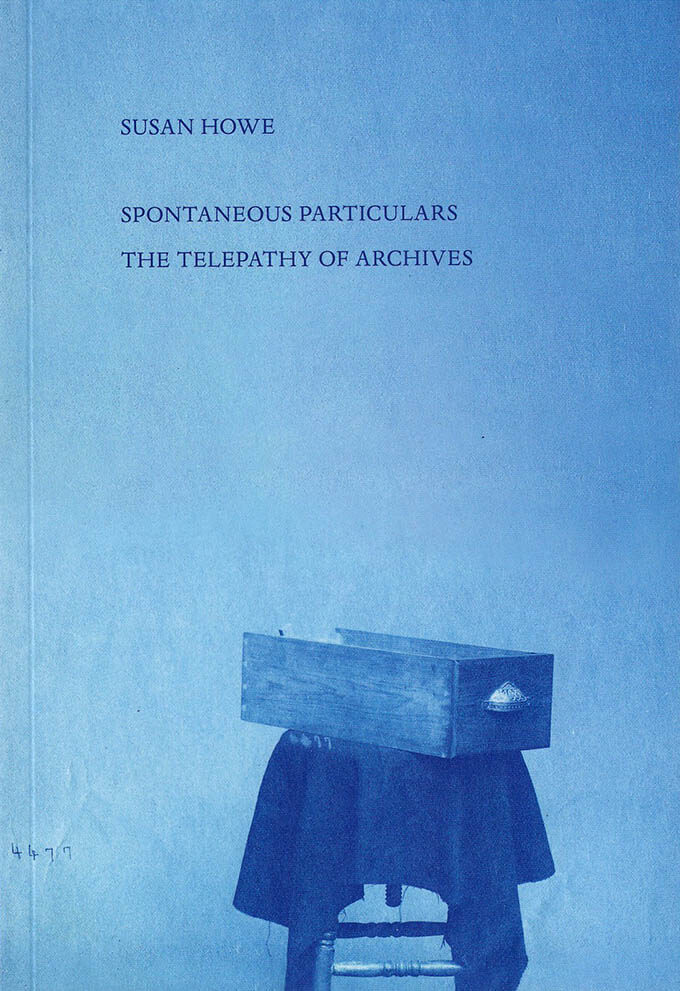
Spontaneous Particulars: Telepathy of Archives
Great American writers — William Carlos Williams, Jonathan Edwards, Emily Dickinson, Noah Webster, Hart Crane, Wallace Stevens, Henry James —in the physicality of their archival manuscripts (reproduced here in the beautiful facsimiles)—are the presiding spirits of Spontaneous Particulars: Telepathy of Archives.
Also woven into Susan Howe’s long essay are beautiful photographs of embroideries and textiles from anonymous craftspeople. The archived materials create links, discoveries, chance encounters, the visual and the acoustic shocks of rooting around amid physical archives. These are the telepathies the bibliomaniacal poet relishes. Rummaging in the archives she finds “a deposit of a future yet to come, gathered and guarded…a literal and mythical sense of life hereafter—you permit yourself liberties —in the first place—happiness.” Digital scholarship may offer much for scholars, but Susan Howe loves the materiality of research in the real archives, and Spontaneous Particulars “is a collaged swan song to the old ways.”
Memorably fierce: with her long career in view today, her comment on Dickinson, in 1985, applies to Howe herself: 'A great poet, carrying the antique imagination of her fathers, requires of each reader to leap from a place of certain signification, to a new situation, undiscovered and sovereign. She carries intelligence of the past into future of our thought by reverence and revolt. — Langdon Hammer
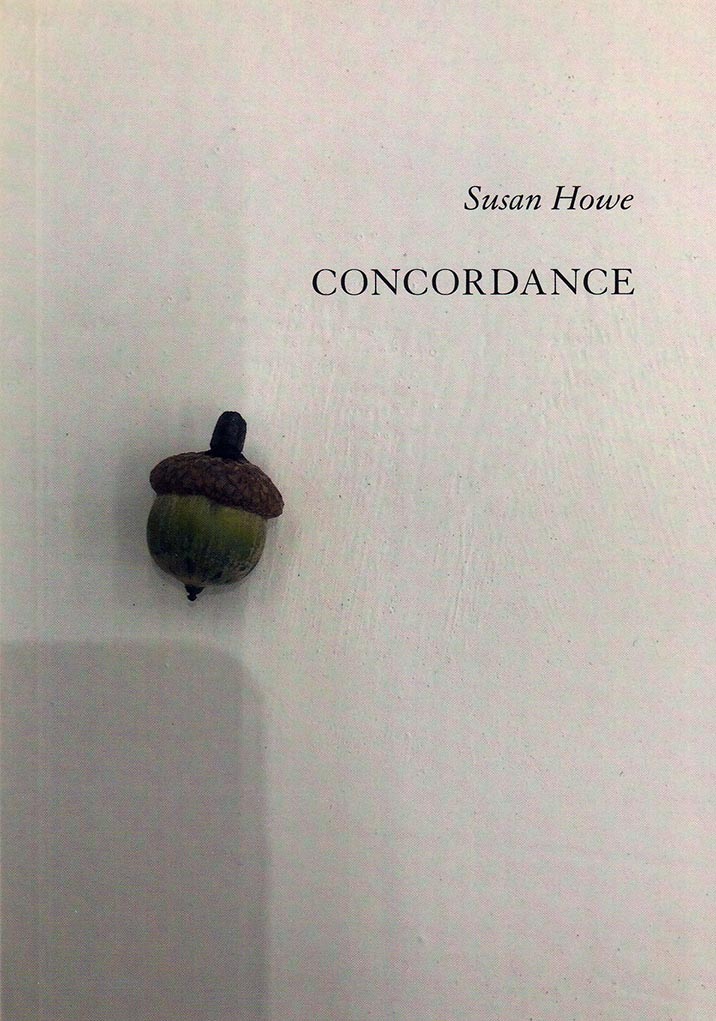
Concordance
“Only artworks are capable of transmitting chthonic echo-signals,” Susan Howe has said.
In Concordance,she has created a fresh body of work transmitting vital signals from a variety of archives. “Since,” a semiautobiographical prose poem, opens the collection: concerned with first and last things, meditating on the particular and peculiar affinities between law and poetry, it ranges from the Permian time of Pangaea through Rembrandt and Dickinson to the dire present. “Concordance” a collage poem originally published as a Grenfell Press limited edition, springs from slivers of poetry and marginalia, cut from old concordances and facsimile editions of Milton, Swift, Herbert, Browning, Dickinson, Coleridge, and Yeats, as well as from various field guides to birds, rocks, and trees: the collages’ “rotating prisms” form the heart of the book.
The final poem, “Space Permitting,” is collaged from drafts and notes Thoreau sent to Emerson and Margaret Fuller’s friends and family in Concord while on a mission to recover Fuller’s remains from a shipwreck on Fire Island. The fierce ethic of salvage in these three very different pieces expresses the vitalism in words, sounds, and syllables—the telepathic spirit of all things singing into air.
In the collage poems language is both word and image. Source texts are cut up and repurposed, overlaid, truncated—they scatter across the page and spill into the gutter, run to the outside margins. Small blocks of quotations are buttressed and broidered by other quotations, slender and enigmatic, running in the opposite direction; some are illegible, serving more as shapes, gnomic geometries born of inscrutable utterances. To embody, in graphic or poetic form, a reconstituted approach to reading and writing, one that reaches beyond the page, through difficulty, silence, and stutters, to another kind of knowledge. — Emily LaBarge